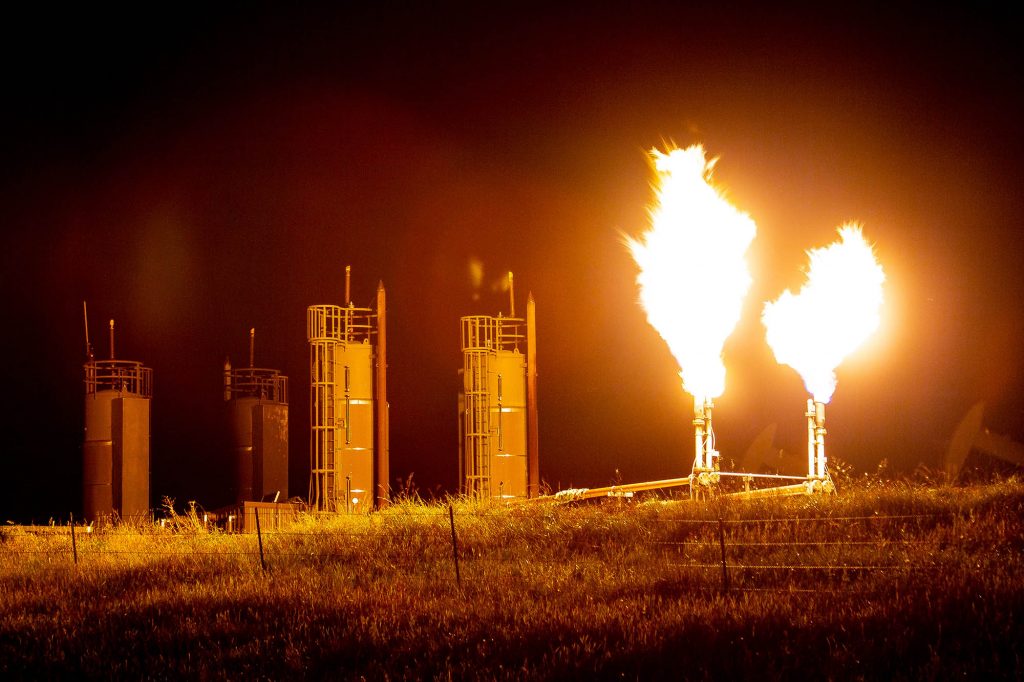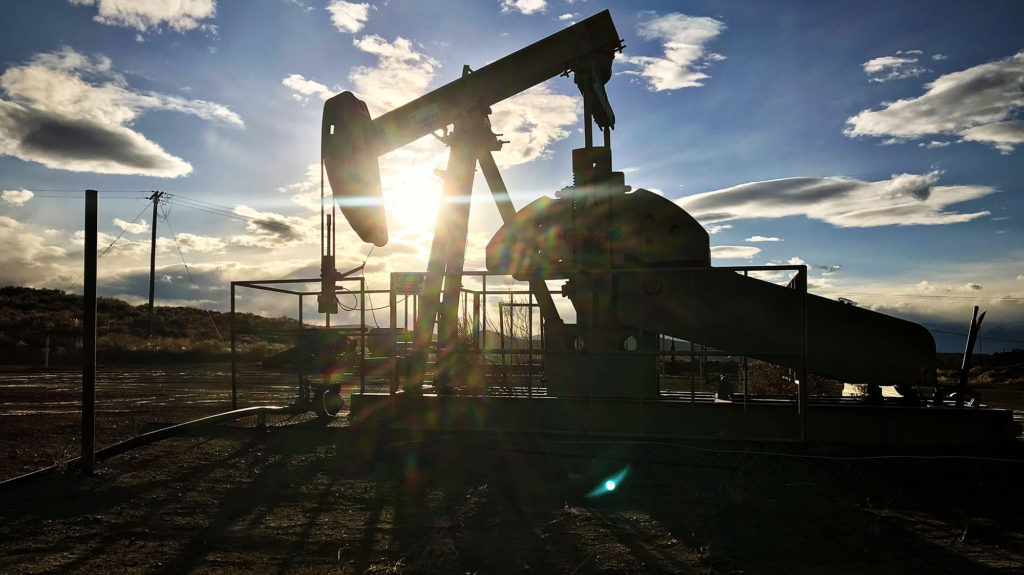New white paper recommends policies for state regulators to hold the oil and gas industry accountable for cleanup and reclamation of their sites and infrastructure.
Unplugged oil and gas wells pose a significant threat to our climate, as well as having negative impacts on water, air, and public health and safety. But the inventory of these wells has been growing, not shrinking, year over year. The longer these wells sit, the more damage they cause.
Fundamentally flawed regulations, lax tracking and enforcement, and decades of corporations abandoning their obligations combine to create a perfect storm of conditions for orphaning oil and gas wells. Hundreds of thousands of oil and gas wells, tanks, pipelines, pits, and roads across the country have been built without adequate financial assurances that they will ever be cleaned up. A new publication from the Western Organization of Resource Councils, “Reclaiming Oil and Gas Wells and Addressing Climate Impacts: State Policy Recommendations,” seeks to address these challenges.
Notably, oil and gas operators are rarely required to post reclamation bonds at or even near the actual cost of plugging and reclaiming wells. Instead, most operators post blanket bonds that cover multiple well sites and are often unrelated to the full cost of reclamation. Plenty of associated infrastructure, such as pipelines, aren’t covered by reclamation bonds at all. Some states impose fees or additional bonds that help fund reclamation of certain sites but are not adequate to address the full scale of the problem. Without significant changes, most existing oil and gas wells may not be plugged and reclaimed by their operators, and regulators will not have the funds to cover these costs if they are orphaned.
“For decades, unplugged wells have been allowed to pollute the land, water, and air of thousands of Westerners who live near oil and gas development. It’s time to fix this broken system that subsidizes the industry at taxpayer expense.”
—Barbara Vasquez, a leader with the Western Organization of Resource Councils, from Cowdrey, Colorado.
Ensuring complete and timely plugging and reclamation of oil and gas wells should be a basic cost of doing business in the oil and gas industry and fundamental to the industry’s social license to operate. However, there are significant limitations in existing regulatory policy that have led to—and are likely to lead to more—oil and gas wells that have not been properly plugged or sites remediated.
Never miss an opportunity to make the West even better: receive our action alerts.
This paper seeks to summarize the challenges state regulatory programs face, and make recommendations for stronger policies that will help ensure that oil and gas sites are plugged and reclaimed in a complete and timely way. The most critical policy solution to ensure wells are cleaned up is to require financial assurance, or bonds, at a level that covers the full cost to plug and reclaim them. This strategy can ensure that industry—not states and taxpayers—will be responsible for these costs.
Unfortunately, existing state policies are not up to the task of managing the current idle and orphaned well problems and looming threat. While some state policies are more successful than others, no state has a comprehensive set of policies that is strong enough to ensure that all wells will be plugged and reclaimed, or provide funding to do so.
Download the paper to learn more.
TweetLearn more:
Taxpayers and Landowners Face Massive Liability from Orphaned Wells with Oil at $20
Bonding Crisis Looms in Colorado as Gas Prices Tip Into the Red
Westerners Support Reforming Broken Leasing System for Federal Coal, Oil, and Gas

Help create a healthy and sustainable West. Support WORC today.

